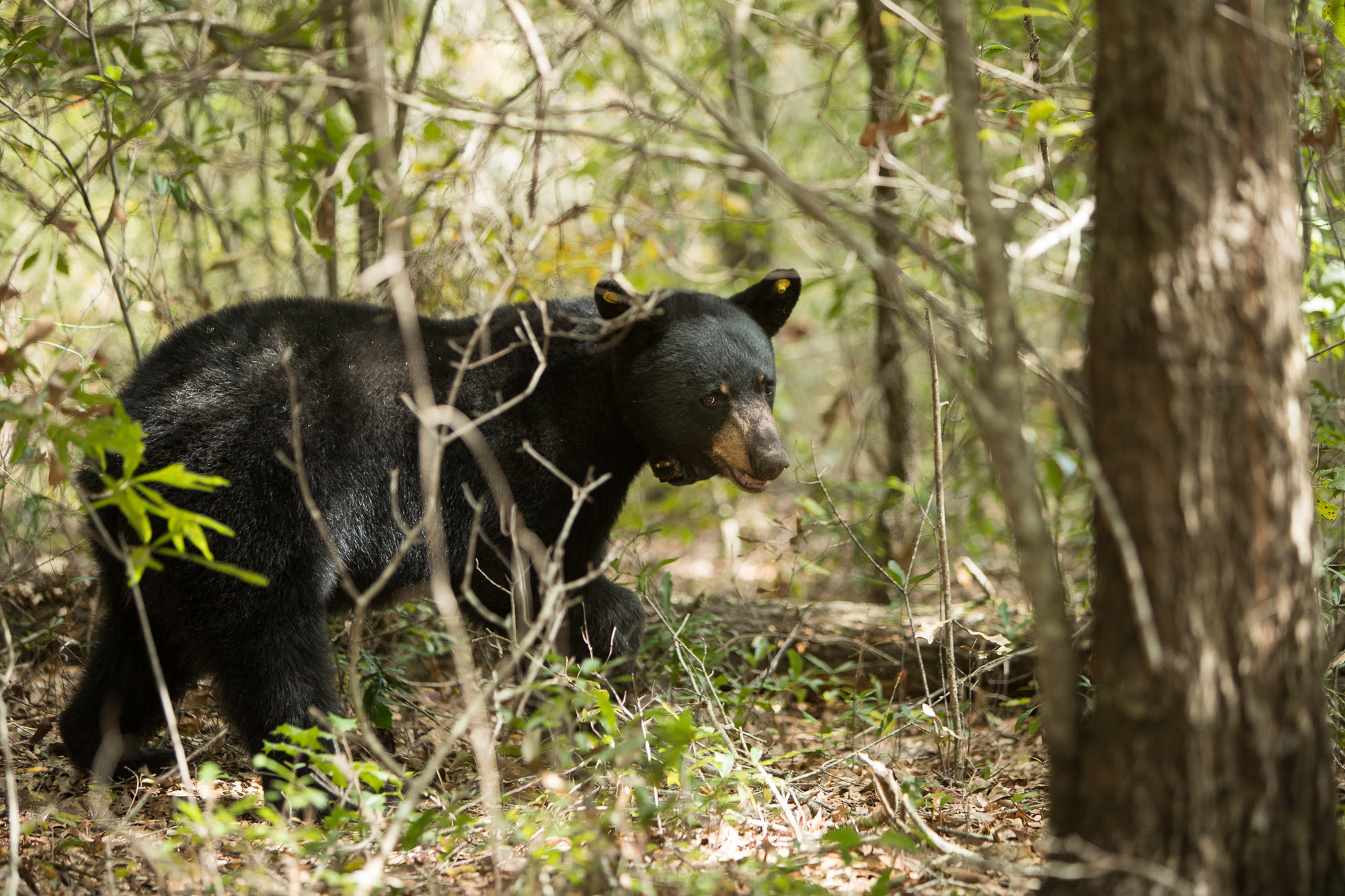Photo by Billy Pope, ADCNR
Add Jackson, Limestone, Marshall, Morgan and St. Clair counties to the growing list of black bear sightings in Alabama in 2018. In recent years, bears have also been recorded in Chambers, Elmore, Jefferson, Lee, Macon and Tallapoosa counties. These recent sightings are more evidence of the state’s expanding black bear population.
Biologists from the Alabama Department of Conservation and Natural Resources say the increase in sightings may be due to a combination of factors including changes in bear distribution, habitat fragmentation, seasonal movement and the summer mating season. However, most spring and summer bear sightings are of juvenile males being pushed out of their previous ranges by their mothers and other adult males.
Historically, a small population of black bears have remained rooted in Mobile and Washington counties. Baldwin, Covington and Escambia counties on the Florida border host yet another population of bears. In northeast Alabama, bears migrating from northwest Georgia have established a small but viable population.
“While seeing a black bear in Alabama is uncommon and exciting, it is no cause for alarm,” said Marianne Hudson, Conservation Outreach Specialist for the Alabama Division of Wildlife and Freshwater Fisheries (WFF). “There has never been a black bear attack on a human in Alabama.”
Black bears are typically secretive, shy animals that will avoid human interaction. Occasionally, a curious bear will explore a human-populated area in search of food.
“If you are lucky enough to see a bear, simply leave it alone,” Hudson said.
Below are tips on what you should do if you encounter a black bear and how to avoid attracting one to your property.
• Do not run from the bear.
• Avoid direct eye contact with the bear.
• Encourage the bear to move away by waving your arms and yelling as you slowly back away.
• Make sure the bear has an unobstructed direction to escape.
• In the unlikely event of an attack, fight back. Never “play dead.”
• Never approach or purposely feed a bear.
• Store all food indoors or in a bear-resistant container.
• Do not leave pet food outside overnight.
• Keep trash cans clean and don’t put trash out until the morning of pick up.
• Avoid feeding birds and other wildlife from April to January when bears are most active.
For more bear safety tips, visit www.bearwise.org.
Those who have seen a bear in their neighborhood, on their property, or crossing a road are encouraged to report the sighting to their local WFF District Office. This information helps biologists document black bear movement and distribution in Alabama. WFF district contact information is available at www.outdooralabama.com.
Bear sightings can also be reported online at https://game.dcnr.alabama.gov/BlackBear or by email to Thomas Harms at Thomas.Harms@dcnr.alabama.gov.
In Alabama, black bear is a species of highest conservation concern with no open season. Shooting at one is a Class A misdemeanor. Other penalties for shooting at a black bear include the potential loss of hunting and fishing license privileges for three years and possible jail time.
For more information about black bears in Alabama, visit www.outdooralabama.com.
The Alabama Department of Conservation and Natural Resources promotes wise stewardship, management and enjoyment of Alabama’s natural resources through four divisions: Marine Resources, State Lands, State Parks, and Wildlife and Freshwater Fisheries. To learn more about ADCNR, visit www.outdooralabama.com.



















